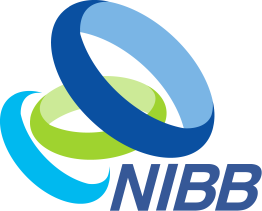Evolution and Environmental Biology 1
1st Half
1 Credit
47 Basic Biology Program
Kamei, Takizawa, Hasebe, Minagawa, Morita, Yokono
Four-grade evaluation
Level : Level 3
Competence : Academic expertise
■Outline
(1) Lecture starts from summary of relationship between living organisms and light environment and discusses light response of various organisms in the points of photoreceptor studies. After understanding photoreceptors, lecture turns to applications of photo-related biomolecules including fluorescent proteins and photoreceptors for microscopic studies and finally discusses light-driven cell manipulation called optogenetics using photo-related bio-responses.
(2) Lectures covering the principles of photosynthetic reactions, their molecular mechanisms, their structural basis and the analytic means will be given, with a special emphasis on its relation to environments such as how environments regulate photosynthetic reactions, how photosynthetic organisms were evolved, and the impact of photosynthesis on environments.
(3) This lecture will introduce plant development and movement in response to environmental signals. This lecture will focus on gravity and light as environmental signals, and give an outline of the molecular mechanisms of signal reception and transduction. The role of plant hormones underlying the responses to gravity and light will also be explained.
(4) This lecture introduces Astrobiology which aims to understand the origin, evolution, and spread of life in the universe, including the Earth. Various environment of extra-solar planets and the plants wherein will be explained.
(5) Green plants landed about 500 million years ago, and after the prosperity and decline of many species, five major groups have survived to the present day: bryophytes, lycophytes, monilophytes, gymnosperms, and angiosperms. This lecture aims to provide an overview of the morphology and development of these land plants and how they have evolved from their common ancestor, by integrating knowledge from paleontology, genomics, molecular biology, cell biology, developmental biology, systematics, and evolutionary biology. Furthermore, it seeks to identify the key questions that remain to be addressed in future research on the evolution of plant morphology.
■Learning objectives
1. Understand light-response of living organisms.
2. Understand photoreceptor molecules and their mechanism.
3. Understand microscopic technologies using photo-related biomolecules.
4. Understand the principles of photosynthetic reactions.
5. Understand environmental acclimation of photosynthesis.
6. Understand why light energy cannot be used directly for photosynthesis.
7. Understand light energy storage in photosynthetic organisms.
8. Understand why energy input is necessary for material production.
9. Understand plant responses to gravity and mechanisms underlying the responses.
10. Understand the mechanisms by which plant growth and development adapt to the light environment.
11. Understand the roles of plant hormones in growth response to environmental stimuli.
12. Understand the diversity of planetary environments.
13. Understand the environmental adaptation of plants outside of the Earth.
14. Understand the evolution of morphology in land plants, with focusing on their genetic regulatory networks.
■Grading policy
Grades will be given as Pass/Not passed, which is determined based on the class attendance and by the quality of a papers submitted to the lecturer by the deadline. The subject(s) of the paper must be two out of the 14 course objectives.
■Lecture Plan
1. June 17, 2025 (Prof. Kamei; Myodaiji Area Seminar Room 1)
13:00-13:45 Living organisms in light environment
13:50-14:35 Light and photoreceptors I
14:40-15:25 Light and photoreceptors II
2. June 24, 2025 (Prof. Minagawa, Assoc. Prof. Yokono, Assis. Prof. Kosugi; Myodaiji Area Seminar Room 1)
13:00-13:45 Photosynthesis and its environmental acclimation
13:50-14:35 Synthesis using light
14:40-15:25 Physiological ecology of polar photosynthetic organisms
3. July 29, 2025 (Prof. Morita, Assis. Prof. Shikata, Assis. Prof. Nishimura; Myodaiji
Area Seminar Room 1)
13:00-13:45 Plant response to gravity
13:50-14:35 Light as the cue for plant growth and development
14:40-15:25 Plant hormones in growth response to light and gravity
4. July 8, 2025 (Assoc. Prof. Takizawa; Myodaiji Area Seminar Room 1)
13:00-13:45 Astrobiology
13:50-14:35 Light environment and plants on the planet
14:40-15:25 Water environment and plants on the planet
5. July 22, 2025 (Prof. Hasebe; Myodaiji Area Seminar Room 1)
13:00-13:45 Evolution of land plants I
13:50-14:35 Evolution of land plants II
14:40-15:25 Evolution of land plants III
■Location
Lectures will be given in person, but will also be streamed online Face-to-face in Myodaiji Area Seminar Room 1
■Language
English (Japanese may be used only when all students are native Japanese speakers).
■Textbooks and references
■Notes for students of other programs
Students other than Basic Biology Program who wish to enroll in this class should contact Graduate Student Affairs Section, Okazaki Administration Center (r7139@orion.ac.jp) during the registration period.
■Keyword
Astrobiology, Environmental acclimation, Evolution, Extra-solar planet, Genetic regulatory network, Gravitropism, Morphology, Land plants, Life in the universe, Origin of life, Photoreceptor, Photosynthesis, Plant hormone, Plant movement, Stress response
■Contact for Course Inquiries
For inquiries regarding the lecture content, please contact the respective lecturer. For all other inquiries, please reach out to the Graduate School Section of the International Research Cooperation Division at the Okazaki Integrated Administrative Center (r7139@orion.ac.jp).




